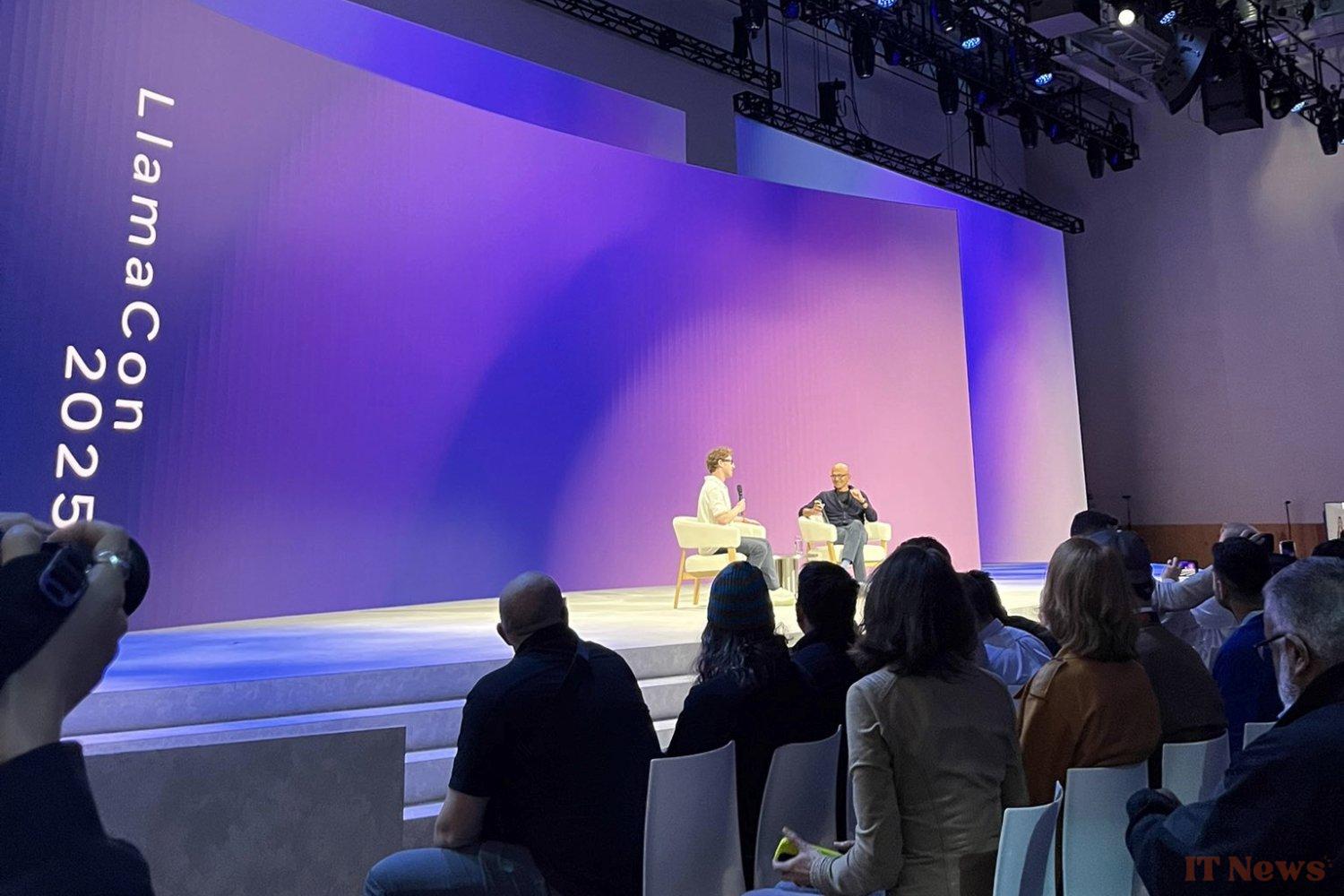During a discussion with Meta CEO Mark Zuckerberg at Facebook's parent company's LlamaCon conference on April 29, Satya Nadella revealed a significant piece of information: the share of AI-generated code in the company's overall code output. The Redmond-based company's CEO was responding to a question posed directly by Zuckerberg, before the latter replied with the same question. While Satya Nadella was transparent, his counterpart was not.
We now know that approximately 30% of Microsoft's code is currently generated using artificial intelligence. This share is reminiscent of that of Google (through its parent company Alphabet), announced on April 24 by its CEO, Sundar Pichai. This share is clearly on the rise, as it was equivalent to 25% last October. The CEO then took the opportunity to indicate that AI code generation affects all parts of the company.
“It’s deeply rooted in everything we do, including within the finance team that’s preparing for this earnings call,” declared Sundar Pichai.
95% of Microsoft’s code generated by AI by 2030
For Microsoft, they preferred to emphasize the fact that AI was not yet optimal for everything, without supervision. The results were mixed, according to Satya Nadella, who announced that progress was greater in Python than in C++. According to Microsoft CTO Kevin Scott, the evolution will be strong, with the share of AI-generated code reaching 95% by 2030. "Very little code will be, line by line, written by humans," he added in an episode of the 20VC podcast.
Read also AI wars: Meta excludes Apple Intelligence from Facebook, WhatsApp and Instagram
Earlier in March on CNBC, Garry Tan, the head of Silicon Valley's most famous startup incubator, Y Combinator, said he expected generative AI for computer code to allow "a team of 10 engineers to do the work of 50 to 100 people".
Rather than lamenting it, the man saw it as an exceptional opportunity: "You know, it's Maybe that engineer who couldn't get a job at Meta or Google, but managed to build an independent company generating $10 million or $100 million a year with 10 people," Tan said. "It's such a powerful moment in the software industry."
Source: Tech Crunch



0 Comments